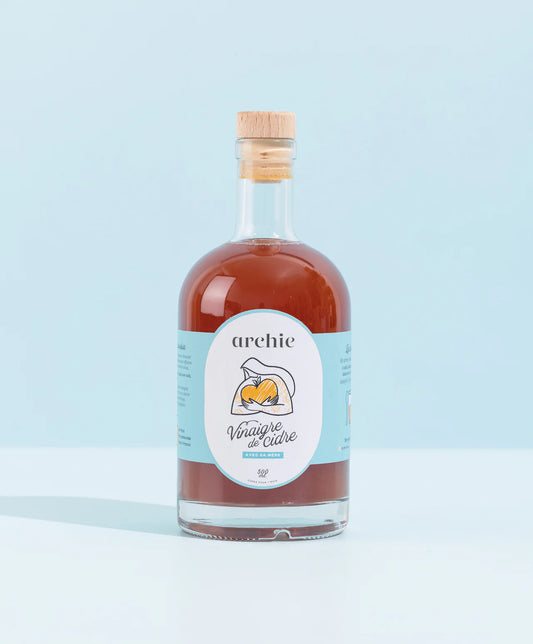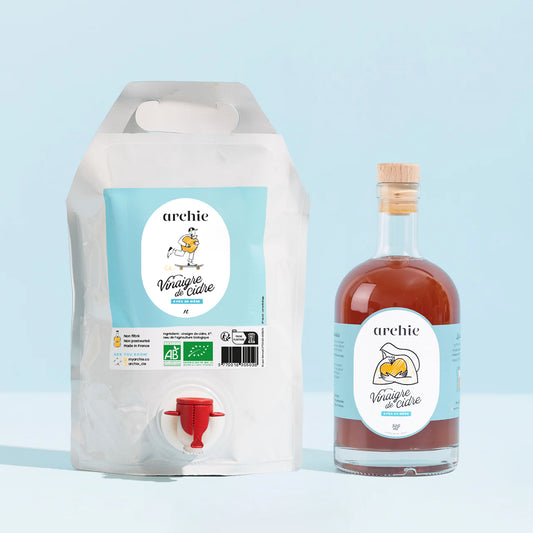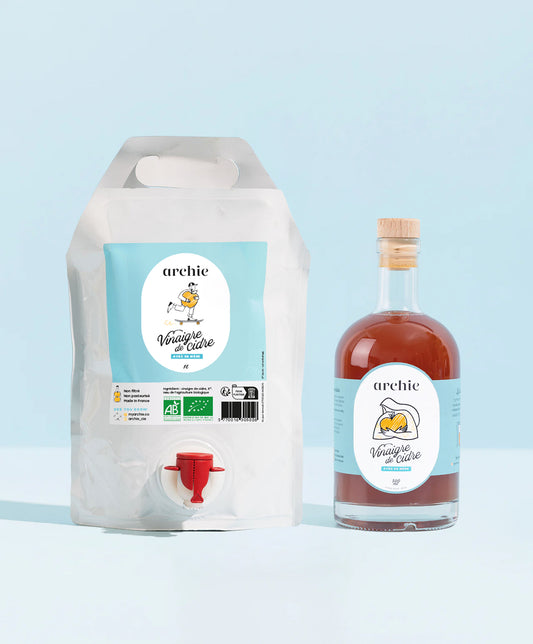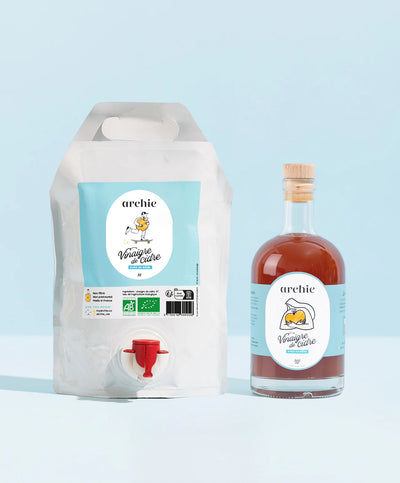
Have you seen these trends on Instagram and TikTok in France, where some doctors are claiming that morosil and apple cider vinegar are valuable allies for weight loss? Social media is full of glowing testimonials, but does it really work? Let's discover the secrets of morosil together!
What are morosil and apple cider vinegar?
Morosil: a natural citrus extract
Morosil is a registered trademark that refers to a natural extract of Moro blood orange, also known as Moro orange. Moro blood orange is a variety of orange characterized by its intense red color due to the presence of pigments called anthocyanins. Morosil has health benefits, particularly for weight management and reducing blood lipid levels. Morosil may aid weight loss due to its antioxidant properties and its effects on lipid metabolism.
Apple cider vinegar: a natural regulator and detoxifier

Apple cider vinegar, made from fermented apples, is a natural regulator and powerful detoxifier. Rich in acetic acid, it helps stabilize blood sugar levels, which is beneficial for weight control. It also supports liver function, promoting the elimination of toxins and improving digestion by stimulating enzyme production. Some studies also suggest that it contributes to the feeling of satiety, thus reducing appetite and promoting weight loss. To fully benefit from it, it is recommended to dilute it in water before consumption, to protect tooth enamel, and to integrate it into a balanced diet. Apple cider vinegar is a valuable ally for weight loss , as it helps regulate blood sugar and control appetite, while promoting healthy digestion.
Individual benefits of weight loss
How does morosil promote weight loss?
Morosil has several benefits related to reducing blood lipids and regulating metabolism, which can support weight loss and contribute to a slimmer figure. Here's how it works:
Antioxidants and anthocyanins: Morosil is rich in anthocyanins, natural pigments with antioxidant properties. These compounds help neutralize free radicals, reducing cellular damage, particularly in blood vessels. By protecting vascular health, they help reduce the risk of cardiovascular disease.
Reduced lipid oxidation: The antioxidants in morosil can limit lipid oxidation, a process that damages fats in the body. By preventing this oxidation, morosil helps maintain more balanced cholesterol levels and promote cardiovascular health.
Effects on Lipid Metabolism: Compounds in Moro blood oranges can influence fat absorption in the intestine and regulate cholesterol levels. This contributes to a healthier lipid metabolism, facilitating weight management.
Insulin sensitivity: Preliminary research suggests that anthocyanins may improve insulin sensitivity. Improved insulin sensitivity is essential for balanced lipid metabolism, which can also aid in weight loss and help manage sweet cravings, such as candy.
By combining these effects, ladies and gentlemen, morosil proves to be an interesting ally for those looking to regulate their cholesterol levels while supporting their weight loss efforts. This dynamic duo is also a valuable asset in your quest for slimming and fat loss!
The effects of apple cider vinegar on metabolism

Blood glucose (sugar) refers to the concentration of glucose (sugar) in the blood, an essential source of energy for the body. In a nutshell, it's the coal that keeps the train moving! Its level is precisely regulated to ensure the proper functioning of cells and organs. When we consume food, especially those rich in carbohydrates, the digestive system breaks these carbohydrates down into glucose, which is then absorbed into the bloodstream, causing a temporary rise in blood sugar. To promote better health, it's essential to reduce the sugar in our diet, which can also help stabilize our energy levels throughout the day.
To control this concentration, the pancreas releases insulin, a hormone that allows glucose to enter cells where it is used as an energy source. Normal blood sugar levels are crucial: levels that are too high (hyperglycemia) or too low (hypoglycemia) can cause various health problems, including diabetes-related complications such as cardiovascular problems and nerve damage. Proper blood sugar management can also support your weight-loss efforts by maintaining stable energy levels and reducing food cravings. Detoxifying the body is essential for eliminating accumulated toxins, promoting better health and renewed vitality.
Related to blood sugar, the benefits of apple cider vinegar play an important role in regulating blood glucose levels:
-
Improved insulin sensitivity: Studies suggest that apple cider vinegar can increase insulin sensitivity, allowing cells to respond more effectively to this hormone. This helps stabilize blood glucose levels.
-
Delayed gastric emptying: It slows down gastric emptying, allowing food to remain in the stomach longer. This action contributes to a more gradual release of sugars into the blood after meals, thus helping to maintain more balanced blood sugar levels.
-
Reduced Carbohydrate Absorption: By decreasing the absorption of carbohydrates into the blood, apple cider vinegar promotes a more moderate glycemic response after meals, thus limiting glucose spikes.
-
AMPK Activation: Apple cider vinegar may also activate AMPK (AMP-activated protein kinase), an enzyme that regulates glucose metabolism. This activation may have beneficial effects on blood sugar management.
By incorporating apple cider vinegar into a balanced diet, it is possible to support healthy blood sugar levels, which is essential for weight management, appetite control, and overall health.
Why combine morosil and apple cider vinegar?

Imagine a team of superheroes for your health: morosil and apple cider vinegar! Together, they form a dynamic duo that fights excess weight and boosts your metabolism.
Blood sugar under control: Apple cider vinegar acts like a conductor, improving insulin sensitivity and slowing digestion. Meanwhile, morosil provides support by keeping your blood sugar levels stable after meals. A perfect harmony!
Bye-bye, fats! Morosil reduces lipids in the blood, while apple cider vinegar limits the absorption of carbohydrates. Together, they ensure that your body retains the good fat and eliminates the excess. A super slimming and beauty ally ;)
Peak metabolism: Apple cider vinegar boosts the production of digestive enzymes, and morosil optimizes fat metabolism. The result: rapid food processing in the body without annoying bloating!
Antioxidants in action: With its anthocyanins, morosil is a champion antioxidant, while apple cider vinegar also works wonders. Together, they neutralize free radicals, protecting your cells like true guardians of well-being.
Turbocharged Metabolism: By activating AMPK, these two heroes boost your metabolism, helping burn fat more efficiently and regulate glucose. With this combination, you can support your weight-loss goals while maintaining your beauty and figure, while controlling your appetite as part of a balanced diet.
How to take this combination to maximize results?

Get ready for a wellness adventure that might just put a smile on your face! Here's how to get the most out of your powerhouse duo: morosil and apple cider vinegar!
Breakfast of Champions: Start your day with a magical drink! Mix a tablespoon of apple cider vinegar into a large glass of water (add a little honey if you want to sweeten it up). It's like a hug for your metabolism! Add your dose of morosil, and voilà: a super-energizing smoothie to kick-start your day!
Vitamin-packed lunch: Consider incorporating morosil into your meals. Whether in a light vinaigrette or yogurt, it blends easily into your meals. Along with that, don't forget to take a small shot of apple cider vinegar before eating. It's the perfect boost for absorption and blood sugar levels!
Snack time in style: Take a gourmet break with fresh fruit, accompanied by a drizzle of apple cider vinegar. Yes, you read that right! It may sound strange, but it enhances the taste and boosts satiety. Add a dash of morosil for a snack that kicks ass! Also consider kola nuts for a little boost, or a crunchy apple for an even healthier option. Discover the perfect combination of our weight loss and detox products , designed to help you achieve your wellness goals while cleansing your body.
Heroic Hydration: Don't forget to stay hydrated throughout the day. Here's a little tip: add apple cider vinegar to your water for a peppy refreshment. And why not add a little morosil at the end of the day for a final magical touch, to support your weight-loss program and preserve your beauty while controlling your appetite!
Continue reading
- Choosing a selection results in a full page refresh.
- Opens in a new window.





















